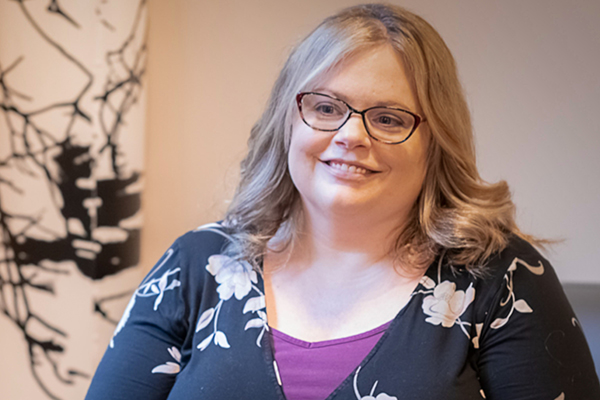
Should I cut someone out of my life?
Article by Dee-Anne Doak, MACP/RCCMany people find it challenging to deal with the difficult people in their lives. Do you cut them out, or try to salvage something? What are your options?

Dealing with the difficult people in your life
A theme I see more and more frequently with my clients is the struggle with how to deal with difficult people.
Relationships change over time, and our ability to tolerate unhealthy relationships can wane.
And as society seems to become more and more polarized, many people get more vocal about their opinions. This includes airing their negative beliefs about certain groups of people who are not like them. Someone may present views that are no longer compatible with your own.
So if you are struggling with difficult people, and sometimes think maybe you’d be better off without them in your life, the first thing to note is:
You are not alone.
Should I cut them out or not?
Some people think you should never cut out family members, while others think family is fair game.
Some people have difficulty setting boundaries with long-time friends, because they're holding on to what they used to have rather than the current relationship.
Some people struggle deciding if they should cut someone out of their life after a breakup, or if it’s better to maintain some level of friendship.
My first thought when I am asked about this issue is to say that you get to make decisions for yourself.
You are the one who has to live with the consequences. It is a personal decision.
Don’t let your friends and family members tell you, or guilt you, into doing things their way.
So, keep that in mind and let’s talk about your options.

Things to consider while deciding whether to limit or cut interactions
How toxic are they?
First of all, consider how toxic are they?
- Are they abusive physically or emotionally?
- Do you feel used by them?
- Are they unreliable?
- Are you tired of hearing about their political views or racist/sexist jokes?
- Do they criticize you – but then say it was a joke?
- Do they try to manipulate you rather than just asking for what they want?
- Are they arrogant and rude?
Are they controlling or abusive?
If the person you are thinking about cutting off is controlling and abusive, leaving the relationship can put you at higher risk.
Sometimes when an abusive person feels like they are losing control of the relationship, they become violent for the first time, or become more violent than they have in the past. Please create a safety plan before cutting off this type of relationship.
This link provides more details on the topic of safety planning.
Tip: you may consider deleting your browser history if you are in a controlling relationship.
Is there still some value in the relationship?
- Are there some things you like about the person or your interactions?
- Do you always feel drained or upset after your interactions?
- Do you have common interests and similar values?
- Have your life circumstances made you less compatible?
Can you see things from their perspective?
We often make assumptions about people without checking their accuracy.
Maybe if you understood better why a person is doing what they are doing, you could find empathy for them. Maybe you would be less aggravated by their behaviour if you understood their thoughts and feelings.
There is a lot of talk these days about “positive vibes only”, but I don’t find this very helpful.
Life is more complex than that.
Many people are struggling with depression and anxiety, or stress and burnout. Many people are grieving or dealing with a serious illness.
Consider giving people the benefit of the doubt, or asking them why they seem down, rather than assuming.
Can you try setting some boundaries first?
Rather than cutting someone completely out of your life, perhaps you can find a way to limit your interactions with them.
- Can you limit the length of time you spend with them or the number of times you see them?
- Can you switch from in-person interactions to video, phone, or messaging?
- Would it help to decline any invitations that might involve alcohol if that is an issue of conflict?
- Would it help to meet in public rather than visiting in your home?
- Maybe include a buffer person if it changes the dynamics.
- Can you visit them without sharing personal details of your life if they have shown that they can’t be trusted with the information?
Setting boundaries for abusive people
If someone is abusive or treats you in a manner that you are not okay with, you could be direct with them and say that you will cut off an interaction if it crosses the line.
- “If you don’t lower your voice I am going to hang up.”
- “I don’t want to discuss this right now. If you keep pushing I will leave.”
- “Let’s focus on the problem and stay respectful of each other.”
- “I’m not okay with name calling. Maybe we should take a time out.”
- “You are important to me but I am important too. I need to take care of myself.”
Making your boundaries clear
If they are oblivious to social cues you can try being more clear with them about your needs.
- “I would love to have you over but I am going to need to say goodnight at 9pm so I can get some sleep.”
- “The kids don’t want a hug from you right now and that’s okay. ”
- “I feel like we are starting to gossip and it is not helpful. Let’s focus on solutions.”
- “I tend to like a little more personal space than you so I’m going to move my chair back.”
The boundaries you set can be to accept the positive parts of the relationship while minimizing the negative.
If you cut someone out, will you stick with it?
Before you cut someone out of your life completely, think about whether or not you can maintain it.
If you tell someone you don’t want any contact with them and then you allow them to contact you, you are giving them permission to ignore what you say.
They will learn that they don’t have to take you or your boundaries seriously.
Try to be honest with yourself about this and only cut someone off if you are prepared to stick to it.
Are there mutual relationships to consider?
Another thing to consider is how will you handle the mutual friends and family you share if you cut someone off.
How will you handle awkward situations? It can get complicated:
- Will you have to cut other people off too because they are sort of a package deal?
- Will you decline invitations to avoid them?
- Will you expect others not to invite them?
People pleasing can make this difficult. Think about what is best for you before considering the impact on others. You have to keep yourself safe from interactions that cause harm.
Need a hand with this?
Book your free phone consultation or schedule a counselling session today


Moving ahead with cutting or limiting interactions with someone
Be confident with your boundaries
When you set boundaries, be confident in in them. You have the right to make decisions that affect you.
You are not selfish.
The other person is taking care of their needs and setting their boundaries – and you get to do the same.
You have the right to:
- Ask for what you want or need
- Say no without explaining
- Feel your feelings
- Be guided by your own values and beliefs
- Be yourself
- Protect yourself from harm
- Be treated with dignity and respect
- Change and grow
- Decide how to spend your time according to your priorities
Make a plan, and put it in writing
If you do decide to cut someone out of your life or limit your interactions with them, it is best to make a plan. This way you don’t have to think about how you will handle each scenario where you might run into one another.
Put you plan in writing.
- Decide what you are and aren’t willing to accept from others.
- Decide if talking to the person could improve the situation or not. Is a conversation necessary or helpful or can you drift apart?
- Make it about you, not them. When you make up your mind, don’t ask them to change. Just show them that you will remove yourself from anything unacceptable.
- Be assertive in your boundaries, not aggressive or demanding.
- Be respectful. This is not a punishment, just a healthy life change.
- Be consistent with your boundaries. Be clear or they will not work.
- Don’t bad mouth them if you cut them off. You don’t have to explain or defend your decisions. You know the truth.
- There is no point cutting them out of your life if you are going to carry the negativity around with you. Work on letting it go and being free.
- Reflect on your boundary setting so you can get better at it. It is easier to start a relationship with firm boundaries than try to introduce them after you’ve developed unhealthy dynamics.
- Plan to share most of your time, energy, money, emotional support for those who give it back.
